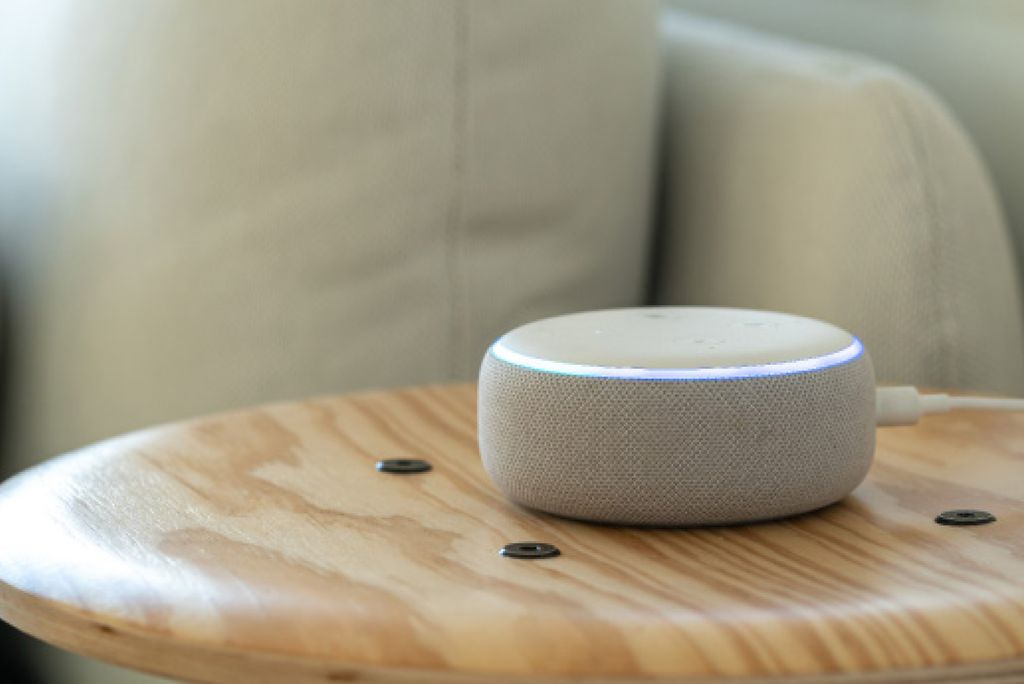Destination Data

Sean Jung (left), a School of Hospitality Administration assistant professor of hospitality analytics, and Richard Currie, an SHA assistant professor of leadership and workplace psychology.
Destination Data
Data analytics and machine learning are shaping the hospitality industry more than ever, but experts say there are still plenty of unexplored opportunities
If you’ve eaten at a restaurant or had takeout this week, chances are you interacted with a point-of-sale system when you placed your order or paid for your food.
Point-of-sale (POS) systems are an especially important tool during a time of rising food costs and labor shortages. They don’t just make it easy for you when you’re dining out; they also provide a wealth of valuable data—sales figures, tipping trends, best-selling dishes, average table turnover time, employee productivity—that can ultimately help inform a restaurant’s business decisions. These systems can even mine individual guest data, enabling businesses to target promotions and tailor experiences to loyal customers.
In its 2023 POS Software Trends Report, Hospitality Technology magazine says that “using data to understand guest behavior” is a top goal for restaurants and notes that enhancing menus, upselling or offering discounts to customers, and refining staffing and inventory practices are some of the key ways restaurants hope to capitalize on the data they collect from their POS mechanisms.
Restaurants are one example of how the hospitality industry is using an abundance of data. Across the industry, data analytics and machine learning—a process by which the information is analyzed by creating algorithms that distill data and pull useful insights from it—have become important tools for optimizing both customer and employee experiences and improving companies’ bottom lines. They’re used to determine airline ticket prices and timing, predict theme park wait times, and help companies recruit top talent.

All of this only skims the surface of the ways data can be leveraged. Now, as the field of data analytics quickly advances, can the hospitality industry keep up and make the most of the information it has access to?
Streamlining recruitment
Data analytics are increasingly playing an important role in recruitment, training, and employee wellness, which is critical to an industry that has faced exceptionally high turnover rates since before the pandemic.
Richard Currie, an SHA assistant professor of leadership and workplace psychology and an expert in industrial and organizational psychology, says the use of data analytics in hiring in particular has grown rapidly in the last decade. He points to the video interviewing platform HireVue, which is used by hospitality companies such as Hilton, Marriott, and Carnival. HireVue can do initial screening interviews, filming candidates as they answer a set of questions.
“It will record their audio and video, and essentially, the software program will look at all kinds of different information from that recording—the tone of your voice, your word choice, as well as nonverbal cues like eye movement and your facial expressions,” Currie says. The software analyzes the data collected from the recorded interview to determine if the candidate is qualified to move on in the interview process. “Organizations or recruiters always have the option to determine how much leeway the program has, but this kind of software reduces that burden for recruiters and for HR personnel who are involved in the selection process.”
There’s absolutely nothing wrong with big data and machine learning solutions, but it’s important to note that the information you put into that algorithm is going to impact the quality of what you get out of it.
Résumé screening, sometimes called applicant tracking systems, is another area of hiring where analytics have been introduced in order to streamline the recruitment process, says Currie. Many of today’s largest companies use software that parses résumés for keywords to determine if a candidate has qualities that would make them a good fit for a role. Only then is the résumé passed along to an individual for further review.
“The hospitality industry is facing staffing shortages far worse than most other industries right now,” says Currie. “With that in mind, I think a lot of big data applications are going to be in selection recruitment. Organizations need to fill positions, and they need to do it well.”
Automated recruitment tools are often touted as helping to reduce recruitment bias and improve diversity. But that’s not a fail-safe. A 2019 Harvard Business Review article, “All the Ways Hiring Algorithms Can Introduce Bias,” notes that “most hiring algorithms will drift toward bias by default.”
“Diversity, equity, and inclusion are primary considerations for human resources professionals and industrial psychologists,” says Currie. “Most organizations aren’t intentionally engaging in discrimination, but when they rely on machine learning to make decisions for them, it’s kind of a garbage in/garbage out mentality.”
For that reason, he says, hiring software needs to draw from data that represent a diverse pool of applicants. “There’s absolutely nothing wrong with big data and machine learning solutions, but it’s important to note that the information you put into that algorithm is going to impact the quality of what you get out of it.”
Currie has also been observing how data analytics and machine learning are being incorporated into employee training. He has the students in his organizational leadership classes work with the software SalesBoost, a program that offers exercises to train employees in soft skills such as listening and communication through voice analysis. It focuses on how they speak, including the tone and cadence of their voice.
“I think it does a great job of supplementing the hard skills that I’m teaching my students, such as how to delegate and how to effectively motivate your staff,” he says. “But communication and listening skills, compassion, all these other things are equally important and very difficult to convey without some kind of a simulation. It’s an interesting application of machine learning in the broader field of organizational psychology.”
“So much opportunity”
Zach Demuth knows hotels. He is global head of hotels research at the commercial real estate company JLL and worked in revenue management for Marriott for almost a decade. He wears a pained look when he says, “Sometimes, the hotel industry can be truly archaic when it comes to technology.” As a result, says Demuth (SHA’11), there’s a corresponding lag in how the industry has used big data.
“Most hotels do a really good job of selling rooms, but they don’t do a good job of selling much else,” he says. “It’s mind-boggling to me that resorts spend so much money and time getting guests to come to the hotel, but once the guest has walked in the door, they do nothing to maximize their opportunity with a captive audience, whether through identifying and reaching out to guests who would purchase a spa treatment or rent a cabana or whatever—the technology to do that just isn’t there.”

Sean Jung, an SHA assistant professor of hospitality analytics, agrees that the hotel industry is optimizing data and machine learning in some areas better than others. Jung says data analytics are being used well at the purchasing stage, through online travel agencies like Expedia and Booking.com. “These platforms try to suggest places to go based on your searches, based on price points you’ve entered before,” he says. “They basically have all these data sets, and they are using machine learning to best predict what you’re going to purchase. They’re successfully using machine learning to make you spend, by targeting experiences based on everything that you’ve actually inputted in your browser already.”
Like Demuth, Jung sees missed opportunities for using data once a guest gets to a property. “This is a newer area,” says Jung, who specializes in strategy management, or finding optimal business solutions to create profitability. “There are some hotels that are thinking about how to create the perfect environment for you based on your past experiences at another one of their properties, or based on data they have on what type of person you are and your preferences.” The tools are there for gathering that information—whether from using an app or from answers to guest surveys, for example—but are often underutilized. “Imagine tailored guest experiences, where you have features like providing you the right temperature the moment you enter your hotel room,” he says. “Or, if you always forget a toothbrush, the concierge will call you in advance asking if you need a toothbrush. They’ll know this type of information based on your past experiences.”
It’s mind-boggling to me that resorts spend so much money and time getting guests to come to the hotel, but once the guest has walked in the door, they do nothing to maximize their opportunity with a captive audience.
Jung sees the beginnings of this kind of personalization in Wynn hotels. Their rooms feature Amazon Echos, which guests can use to perform tasks like opening and closing curtains, controlling lights, and adjusting the temperature. Jung says he can imagine using the information from these devices to inform future guest experiences.
Still, Demuth says, too many hotels can’t identify the general consumer behavior of their guests. “That’s the low-hanging fruit,” he says. “When people stay at a hotel, they essentially live there for three or four days, and there is so much consumer behavior that happens in that time frame. Why are we as an industry not utilizing that data more? The reality is that data exists, and there are many businesses that can tell you that kind of information to a very granular degree. I know there are some companies popping up that gather this information from third-party apps or even from cookies in your web browser. That’s huge.”
At JLL, it’s Demuth’s job to find the data to back up or drive business decisions. He leads the company’s hotels research group, identifying pitfalls and trends across the hospitality industry and analyzing where the industry is headed before presenting those findings to both internal stakeholders and external clients. For one recent project, he helped a private equity group that had purchased a large number of hotels to strategize which markets to target and how to expand over the next few years.

Demuth says he developed a passion for data analytics at Marriott, where he focused on corporate distribution and revenue strategy for the company’s luxury hotels. “What I really enjoyed was understanding market dynamics—what drives demand to a hotel, what drives demand to a region, and how hotels can do their best to capture that demand,” he says. “In my current role, I’m still trying to figure out what drives macro demand to hotels, either from an investment perspective or from an operational perspective—and what data do you need to support all of that.”
Another area where Demuth thinks data analytics are being underutilized is yield management, or dynamic pricing, where businesses change their pricing based on demand.
“I think we as a society have gotten very used to paying different amounts for the same thing—Uber, for example,” he says. “But, for whatever reason, the hotel industry has been very hesitant to adopt it outside of rooms, and I think that, as it relates to big data and particularly as it relates to an industry that has really struggled over the last few years, profitability is more important than ever.” Offerings such as spa services, golf, and meeting room rentals could be subject to variable pricing, he says.
“Pretty much every hotel can very clearly tell you when their busy times are at the spa, and yet massages are the same price no matter what. Most hotels use machine learning for their room pricing, so why not use it everywhere else where it makes sense? There’s so much opportunity with data—but it’s often a missed opportunity. I think that’s starting to change.”


Comments & Discussion
Boston University moderates comments to facilitate an informed, substantive, civil conversation. Abusive, profane, self-promotional, misleading, incoherent or off-topic comments will be rejected. Moderators are staffed during regular business hours (EST) and can only accept comments written in English. Statistics or facts must include a citation or a link to the citation.